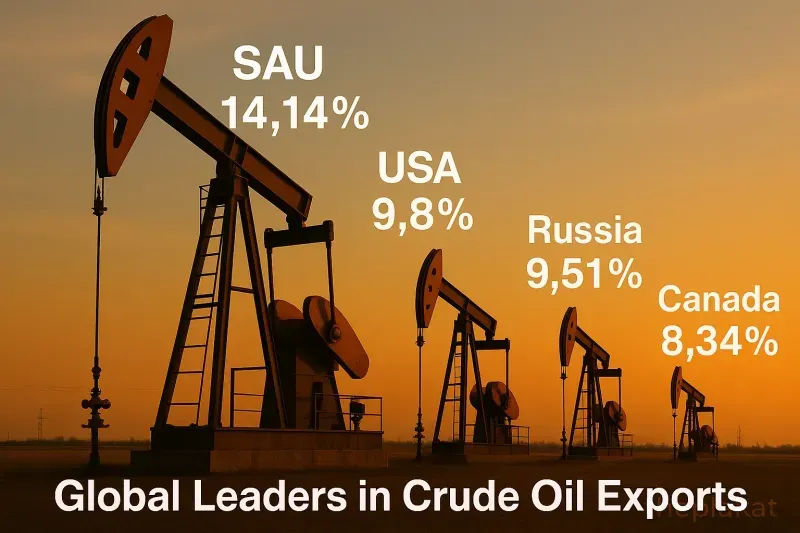Published
in Economy
Saudi Arabia continues to dominate the global crude petroleum export market. The United States and Russia follow closely in export volumes, each playing a critical role in the global supply chain.
In 2023, Saudi Arabia has maintained its prominent position as the world’s largest exporter of crude petroleum. With a 14.14% share of global exports, the country solidifies its influence on the global oil market. This leadership is facilitated by its vast reserves and strategic export policies.
The United States holds a significant share of 9.8%, followed closely by Canada at 8.34%. These figures indicate a robust North American presence in the crude oil sector, showcasing the impact of technological advancements in extraction and production efficiencies that allow them to compete globally.
Despite geopolitical tensions, Russia's share of global crude petroleum exports remains strong at 9.51%. This underscores the nation's enduring role in the global energy market and its extensive energy infrastructure capabilities.
The United Arab Emirates also makes a considerable contribution to global crude exports, with a share of 7.74%. The UAE’s strategic location and investment in oil infrastructure continue to bolster its standing as a key player in the energy sector.
Other regions contribute less than 1% each but together constitute a segment termed 'the rest', collectively impacting the global market dynamics. These countries usually focus on regional trades and niche markets. Understanding these diverse contributions highlights a complicated yet interconnected global oil landscape.

Saudi Arabia is the highest exporter of crude oil in 2023, with a significant 14.14% share of the global market.
Advancements in technology, such as hydraulic fracturing and enhanced oil recovery methods, have increased extraction efficiency and oil outputs, enabling North American countries, especially the US and Canada, to boost exports.
Russia maintains its role through extensive energy infrastructure, strategic trade alliances, and investment in energy sector diversification, which help overcome challenges from geopolitical tensions.